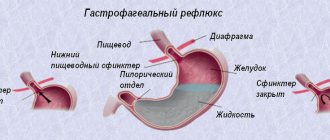Symptoms of fatigue in women
Fatigue symptoms slowly worsen until one day you feel like a hamster stuck on an exercise wheel.
Recently, scientists have found that a very common cause of fatigue and difficulty waking up in the morning in women before and after 40 years of age is a simple lack of vitamin D.
Fatigue can manifest itself in many ways. Sometimes these symptoms go away and reappear along with your monthly cycle. But if the fatigue is quite severe, these symptoms last several weeks or more until they become permanent. These include:
- Feeling exhausted (mentally and physically).
- Fatigue in the morning, even after a full night's sleep.
- Feeling tired or overwhelmed.
- Inability to fully recover from illness or stress.
- Headache.
- General wandering pain.
- Uncharacteristic muscle soreness after physical activity.
- Depressed mood, loss of energy.
- Poor short-term memory, confusion, irritability.
- Strong food cravings (especially sweets or other carbohydrates)
- Dependence on caffeine, sugar or alcohol, especially during the day and early evening.
If you feel any of the above for more than ten days, take it seriously - see your doctor and get a blood test to make sure these symptoms are not due to any serious medical conditions.
Many medications can also cause fatigue as a side effect, so it's best to be on the safe side by checking with your doctor.
Treatment of increased fatigue
Before you begin to treat fatigue, you need to understand its causes. If it is caused by some disease, then it is the disease that needs to be treated. We will present treatment methods that can help if fatigue and tiredness are caused by external factors, i.e. lack of sleep, poor diet or work overload. So, what to do if constant fatigue and weakness prevent you from living?
- Eat a balanced diet. It is very important to pay due attention to your diet. The body must receive all the substances it needs. Load up on fruits, vegetables and fish. Be sure to eat breakfast and remember that breakfast should be the most satisfying of all meals. In addition, avoid fast food, carbonated drinks, fried and smoked foods.
- Adequate sleep is the best cure for increased fatigue. Sleep at least 7-8 hours, and do not go to bed late. If you have trouble falling asleep, take a bath with soothing essential oils or take a walk for half an hour before bed.
- Vitamins are also reliable helpers in the fight against fatigue, especially if it is caused by autumn or spring vitamin deficiency. In this case, a multivitamin complex will greatly help you.
- Oxygen. Walking in the fresh air is an excellent remedy for fatigue. The more you walk, the better you will feel.
- Proper rest is also very important in the fight against fatigue. There must be room for relaxation in your daily routine - during this time you should only do what you like and what makes you feel positive emotions.
- Give up bad habits. It goes without saying that it is necessary to reduce the consumption of alcohol and tobacco to a minimum.
- Sports and physical activity are an effective method in the fight against fatigue. Yoga, Pilates, running and swimming have proven themselves especially good. Well, in general, you can engage in any kind of sport - the main thing is that the activities bring you pleasure.
- Traditional recipes also help get rid of fatigue. Here are some of them:
- Before going to bed, it is useful to prepare yourself the following remedy: mix 100 ml of kefir with 100 g of boiled water and add 10 g of honey to the mixture. This remedy will calm the nervous system and help you relax.
- Ginger tea is an excellent remedy for fatigue. You need to drink it in the morning. Ginger is a storehouse of nutrients and vitamins.
- St. John's wort tincture. 1 tbsp. St. John's wort pour a glass of boiling water and leave for half an hour. Take the resulting infusion 3 times a day. Take 70 ml three times a day for three weeks.
- Medical treatment. Remember to undergo regular medical examinations. It will help to promptly identify diseases that could cause fatigue and begin treatment on time. If fatigue bothers you and you cannot understand its causes, consult a general practitioner.
Diseases in which fatigue is a symptom
Sometimes symptoms of fatigue can result from serious illnesses:
- Thyroid Problems
“Located at the base of the neck and little more than a knot in a bow tie, the thyroid gland controls the body's metabolic rate by producing the hormones T4 and T3. When things go wrong (which can happen to 12 to 15 percent of women in midlife), everything in the body slows down, says Alan Farwell, MD, chairman of education for the American Thyroid Association. Result: decreased endurance and lethargy. Other symptoms: weight gain, feeling cold, constipation, dry skin and hair, depression. - Heart problems
Fatigue is a hallmark of cardiovascular disease in women, according to recent research. In one study of 515 women who had had a heart attack, 70% reported feeling unusually tired in the weeks before; Only 57% had acute chest pain. In another study, fatigue was a symptom for women with dangerously clogged arteries that didn't show up on heart scans.Only one in ten women realizes that heart disease is their biggest health threat. And emergency department doctors are six times more likely to diagnose women with serious heart problems (as opposed to men). Other symptoms: Shortness of breath, indigestion, pain in the shoulder, arm or jaw. Sometimes there are no symptoms.
- Anemia
Heavy menstrual periods, pregnancy, and a lack of red meat in the diet can deplete iron stores, causing anemia. Weak red blood cells cannot deliver enough oxygen to every cell in the body, causing muscles to become weak. According to statistics, every fifth and half of all pregnant women have low iron levels. Research shows that treating anemia with iron supplements under medical supervision can relieve fatigue.Attention! Never take iron supplements on your own—about one in 200 people have a genetic condition in which the body cannot process iron, putting you at risk of overdosing. Other symptoms: abnormally pale skin, fast heartbeat, irritability.
- Hepatitis
If you ever had a blood transfusion or blood test before 1992, dental work, or any other injection with non-disposable syringes, you need a test for hepatitis C - regardless of the fact that there are no other symptoms other than fatigue.
What disease causes weakness, drowsiness, dizziness?
Failures in the functioning of the cardiovascular system provoke the appearance of various symptoms. These pathological disorders are defined by doctors as vegetative-vascular dystonia. The main risk group is women.
Signs of “heart” disorders and problems with the nervous system require urgent medical attention:
- Blood pressure problems;
- Pain in the heart area;
- Chronic weakness, drowsiness;
- Dizziness, headaches;
- Irritability, shortness of breath;
- Rapid heartbeat;
- Cold extremity syndrome;
- Pronounced sweating.
In medicine, vegetative-vascular dystonia refers to a disease that develops for a number of reasons. The provoking factor is hereditary predisposition. This situation can only occur as a result of adverse effects: alcohol abuse, smoking, irrational work and rest patterns, stress.
The main emphasis in the treatment of vegetative-vascular dystonia is on eliminating the main causes. High-quality diagnostics and subsequent selection of methods for correcting the patient’s condition require an individual approach. An important step on the path to recovery is a consultation with a psychotherapist to prescribe sedatives and antidepressants.
Dizziness, accompanied by weakness and drowsiness, can provoke:
- Some loss of orientation, balance;
- Darkening in the eyes, formation of “spots”;
- Weakness in the legs, “swaying” gait.
The periodic manifestation of this clinical picture may be characteristic of diabetes mellitus, osteochondrosis, anemia, and problems with the thyroid gland.
Constant fatigue and weakness during menopause
During menopause and perimenopause, many women may experience a persistent and persistent lack of energy and unexplained feelings of fatigue and weakness. Signs of menopausal fatigue:
- decreased wakefulness,
- decreased attention,
- mental distraction,
- irritability,
- forgetfulness.
The main cause of menopausal fatigue is changes in hormone levels.
Estrogen, progesterone, thyroid and adrenal hormones are involved in regulating cellular energy in the body, which when compromised can lead to fatigue. Physical symptoms of menopause, such as night sweats and insomnia, also contribute to daytime fatigue. Many women suffer from chronic lack of sleep, which also contributes to fatigue during the day, and in turn worsens menopausal symptoms such as anxiety, poor concentration and lack of confidence.
Read more about premenopause and menstrual irregularities.
Elena Malysheva about fighting fatigue with food
What does fatigue mean?
Some diseases, including quite serious ones, can also cause fatigue. Let's look at some of them:
- Anemia is one of the most likely causes of increased fatigue. It often occurs in women during menstruation. To cure anemia, you need to eat a lot of meat and vegetables.
- Colds - lethargy, drowsiness, sweating and weakness are often the first signs of acute respiratory diseases. Weakness may be accompanied by cough, runny nose, fever, and headache. When you have a cold, lethargy and excessive sweating can last for quite a long time; you should not worry about this. You need to drink plenty of fluids, and if the symptoms of a cold are severe, you can take cough drops and antiviral medications.
- Vegetovascular dystonia – a syndrome that includes various dysfunctions of the autonomic nervous system, which is responsible for the functioning of blood vessels and internal organs. Drowsiness, weakness and fatigue in this case may be accompanied by symptoms such as pressure surges, loss of appetite, increased sweating, decrease or increase in body temperature. Exhaustion of the body, headaches, pressing pain in the chest, abdominal pain, etc. may also be observed. The main cause of VSD is nervous exhaustion caused by prolonged stress or emotional and physical overload. A person diagnosed with this disorder needs proper rest and proper nutrition. Doctors recommend including in your diet:
- Products containing potassium - carrots, dried apricots, parsley, buckwheat and oatmeal.
Fiber-rich foods - nuts, legumes, apples, dried fruits.
- Plenty of water – you need to drink 1.5-2 liters of water per day.
- Vitamin preparations, especially B vitamins, as well as vitamin A and vitamin C.
- Chronic fatigue syndrome manifests itself in a feeling of constant causeless fatigue, which is not relieved even by a full and long rest. The patient's performance becomes very low. The presence of the syndrome can be indicated by such signs as joint pain, muscle weakness, night sweats, drowsiness, low-grade fever, emotional and physical exhaustion. Chronic fatigue syndrome is more common among residents of large cities. Signs of the syndrome begin to appear after long periods of fatigue and lack of sleep. Women are more likely to develop chronic fatigue than men. The following methods are used in the treatment of this syndrome:
- acupuncture;
- vitamin therapy - the patient is prescribed B vitamins and vitamin C, as well as magnesium;
- massage and physical therapy;
- psychotherapy;
- if necessary, the doctor prescribes tablets. These can be tranquilizers, nootropics, enterosorbents.
- Depression and stress. Fatigue and emotional exhaustion are often accompanied by depression and stressful situations. In such cases, the help of a psychotherapist is necessary.
- Diabetes . If you are concerned about symptoms such as frequent fatigue, weakness, drowsiness, sweating, weight gain, dizziness, pallor, blurred vision, itchy skin, tingling in the heart, decreased potency in men, increased body temperature, then you need to sound the alarm. The presence of these signs may indicate diabetes. It is worth noting that at the initial stage of the disease a person may not be bothered by any pain, so he may not see a doctor for a long time, explaining his lethargy due to increased stress at work. If you find at least some of the described signs, contact your endocrinologist.
- Hyperthyroidism – a disease that occurs as a result of overactivity of the thyroid gland. It begins to increase in size and releases an increased amount of thyroid hormones into the body, which poison the body. Hyperthyroidism is several times more common in women than in men. This is due to hormonal fluctuations during pregnancy, menstruation, and menopausal syndrome, which does not happen in men. In addition to symptoms such as weakness, drowsiness, lethargy, and fatigue, the following signs may indicate hyperthyroidism:
- weight loss and exhaustion;
menstrual irregularities in women and decreased potency in men;
- nervousness, irritability, anxiety, high excitability;
- cardiopalmus;
- increased sweating;
- hair loss;
- Fever, headaches, tremors of the limbs, diarrhea, abdominal pain and nausea may also occur.
- Diseases of the cardiovascular system. Lethargy and fatigue can be signs of diseases such as myocardial infarction, hypertension, tachycardia, coronary heart disease, rheumatism. Often these diseases are accompanied by pain in the heart, increased sweating, rapid or slow pulse, difficulty breathing, decreased blood pressure, shortness of breath, and irritability. To diagnose cardiovascular diseases, the patient takes a blood test, undergoes an ultrasound examination of the heart, as well as a computed tomography scan and an electrocardiogram.
- Pulmonary tuberculosis. Some of the first symptoms of tuberculosis are weakness, drowsiness, and lethargy. They are accompanied by loss of appetite, exhaustion of the body, and a slight increase in body temperature in the morning. After some time, tingling in the shoulder blades, chest pain, cough, hemoptysis, and night sweats may appear. If you suspect tuberculosis, you should consult a doctor. So that the disease does not take you by surprise, do not forget to do fluorography once every 2 years.
- Menopausal syndrome. Excessive sweating, constant fatigue, and increased fatigue can be observed in women during menopause. One of the most indicative signs of menopausal syndrome are the so-called “hot flashes”. The reason for increased sweating during menopausal syndrome is a change in a woman’s hormonal background, in particular a decrease in the level of estrogen hormones, which have a direct effect on the thermoregulation center located in the hypothalamus. During the period of hormonal changes in the body, it is important for a woman to lead a correct lifestyle, for which she needs to eat a balanced diet (especially You should load up on fresh vegetables and fruits), take vitamins, play sports, spend a lot of time outdoors and find time for proper rest. During menopause, the body depletes vitamin C, B vitamins, calcium and magnesium, so it is necessary for the doctor to select the most suitable multivitamin complex for the woman, which should also include vitamins A and E, which have a beneficial effect on the condition of the skin, hair and nails Tablets and drops based on medicinal plants have proven themselves to be effective in relieving the symptoms of menopausal syndrome: black cohosh, chasteberry, pollen. Sometimes a course of sedatives: valerian, motherwort, Corvalol can improve your well-being.
At the same time, it is necessary to avoid fried and smoked foods, canned food, soda, and cigarettes and alcohol are out of the question. After examining the patient, he is prescribed treatment. In most cases, they do without pills, limiting themselves to psychotherapy. Cognitive behavioral therapy has a good effect. For children and adolescents, family therapy is considered the best method. If vegetative-vascular dystonia significantly affects the patient’s quality of life, the doctor may prescribe pills and medications. These can be tranquilizers, nootropics, antipsychotics and antidepressants. Calming tablets and preparations based on motherwort and valerian are also prescribed.
If hyperthyroidism is suspected, it is necessary to do an ultrasound of the thyroid gland, as well as tests for the hormones T3, T4 and TSH. There are 3 methods of treating the disease: medication (pills), surgery, iodine therapy (destruction of the thyroid gland with radioactive iodine). The treatment method is selected individually by an endocrinologist. With the medicinal method of treatment, the patient is prescribed tablets that destroy thyroid hormones (such tablets include, for example, “Tyrozol”), and in parallel with them tablets to replace destroyed own hormones (for example, “Eutirox”).
Other causes of fatigue and weakness
There are also more commonplace reasons for constant fatigue, which include:
- Lack of sleep
Adults need seven to nine hours of sleep a night to rest and recover. School-age children and teenagers need at least eight to ten hours of sleep. Emotional stress, anxiety, chronic pain, allergies, caffeine, alcohol, hot flashes, and illness all make it difficult to get a good night's rest. Lesser-known causes include television, ambient light in bedrooms, personal computers, poor sleep environments, and uncomfortable beds. Try to remove all kinds of interference and give yourself a good night's sleep. Perhaps the fatigue will go away. - Stress
It is possible that fatigue is both physical and emotional in nature. By conventional wisdom, persistent mild fatigue is usually considered a reaction to lack of sleep or overtiredness, in which case a prescription for a sedative for insomnia is usually prescribed. But in this case, even despite getting enough sleep for six to eight steady hours, stress fatigue does not go away. - Poor nutrition
Adequate nutrition is what the body often lacks - balanced nutrition for proper functioning. Apart from this, eating a large amount of food at once can also cause fatigue and lethargy since it will require a huge amount of energy to digest it. One of the reasons people become food dependent is because the body diverts blood supply and energy from other places (such as the brain) for the digestive process. - Dehydration.
Fluid loss is a very common and overlooked cause of mild fatigue. To avoid this condition, drink eight glasses of pure, filtered water, herbal tea, or diluted, unsweetened juice per day. A fluid loss of just 2% is enough to cause mental confusion and short-term memory loss. Drowsiness, muscle weakness, dizziness and headache if fluid levels drop below this. Coffee and soda do not count because their diuretic effect causes fluid loss. - Inactive lifestyle.
The body needs rest and movement. And as strange as it may sound, long periods of inactivity can lead to fatigue. Regular moderate exercise helps regulate metabolism and adjusts the circadian rhythm, releasing high levels of stress hormones such as cortisol and adrenaline, which promotes restorative and rejuvenating sleep. - Potassium deficiency
Read more about potassium deficiency in the body and its symptoms
There are many other reasons, the symptom of which is constant fatigue and weakness in women, however, to more accurately determine the cause, it is necessary to undergo a diagnosis and consultation with a doctor. Self-medication can aggravate the situation and lead to serious consequences.
Obstetric conditions and gynecological diseases
| Main symptom | Additional symptoms |
| Weakness throughout the body |
|
Vitamins for fatigue and weakness
Sometimes it happens that a long-awaited vacation has passed quite recently, but feelings of fatigue and anxiety continue to bother you. Loss of concentration, insomnia or, on the contrary, chronic drowsiness, depression, as well as frequent mood swings indicate the body needs additional support. In most cases, the result of all problems is a seemingly banal lack of vitamins.
B vitamins
A wide group of B vitamins are precisely those substances that ensure most metabolic processes in the body, which means they nourish cells and provide the necessary energy.
Physical activity, stress, illness, and injury exhaust a person, so the need for additional sources of nutrition increases tenfold. For example, folic acid (Vitamin B9) eliminates the negative effects of depression, successfully fights insomnia, and also eliminates unpleasant tingling in the limbs.
Women planning to conceive a child especially need a useful element - they urgently need to tune in to a positive mood and eliminate any signs of fatigue.
You can replenish your folic acid reserves by adding to your daily diet:
- wheat flour,
- melon,
- avocado,
- cheese,
- apricots,
- egg yolks,
- carrot.
It is worth considering that Vitamin B9 is destroyed under the influence of high temperatures, so the above products are recommended to be subjected to minimal heat treatment.
In addition to folic acid, you need to pay attention to other elements that are part of group B. Thus, cyanocobalamin or Vitamin B12 relieves symptoms of fatigue and gives the body strength to function properly.
A deficiency of this element prevents the healthy formation of blood cells, which transport oxygen to cells. You can compensate for the lack of cyanocobalamin using:
- dairy products,
- eggs,
- fish,
- various types of meat.
Vitamin C
Another important substance for eliminating the symptoms of chronic fatigue is Vitamin C, which strengthens the immune system, reduces the negative effects of stress, improves mood and well-being. Ascorbic acid is included in:
- white cabbage,
- pepper,
- potatoes,
- tomatoes,
- rosehip,
- blackcurrant, including leaf tea and juice.
Vitamin D
Vitamin D deserves special attention, as it is necessary to maintain cardiovascular health.
Changes in blood pressure, heart failure, clogged blood vessels affect the general condition of the body, and also lead to unpleasant symptoms of fatigue, and all this is due to a deficiency of vitamin D in the body. To avoid illness, it is enough to eat seafood, milk and cheese. Vitamin dosages are calculated individually after a thorough examination and blood test. In case of deficiency of any of the vitamins, the doctor will write a prescription with the required dosage indicated.
It is not recommended to take vitamin complexes that are available in pharmacies without consulting your doctor. Otherwise, you can easily harm the body. In addition, most of the beneficial elements contained in pharmaceutical preparations are not absorbed.
Conclusion
So, there are many different factors that lead to daytime fatigue and apathy. In order to accurately determine the root cause due to which the condition is worsening, it is important to undergo an examination and those diagnostic procedures recommended by the therapist or attending physician. To prevent lethargy and weakness of the body, it is necessary to eat a healthy, balanced diet, so that the diet contains a sufficient amount of fats, proteins, carbohydrates, microelements and vitamins. Also, you don’t need to be physically and mentally overtired, you need to do morning exercises and be in the fresh air more often, then the body will be filled with vital energy and strength.
Weakness in the body in spring in women: what to do
The sun is shining, the days are getting longer, but not all of us feel energetic.
For many women, this is the season for leaden legs and frequent yawning. If women experience a feeling of weakness in the body in the spring, and especially in the mornings, when the temperature rises and the sun rises earlier, if it has become more difficult to get out of bed, you are not alone.
Spring fatigue is a common health problem for many women around the world. It is assumed that sleepiness is a natural symptom caused by our physical system. During winter, our body's levels of hormones such as serotonin (a stress reliever and happiness booster) decrease due to shorter daylight hours, and the body produces more of the sleep hormone melatonin. And when spring comes, bringing more and more hours of sunshine, the body must adapt. Body temperature rises, blood vessels dilate, blood pressure drops. Light causes the body to release more of the “activity hormone” serotonin, while the amount of melatonin is still very high. The body cannot manage adaptation processes overnight. As a result, some of us feel sluggish, less motivated, low on vitality and tired at the end of the winter season.
The process of adapting to these seasonal changes is called spring fatigue. How to deal with this? Here are some techniques to help you survive the changing seasons:
- A cup or two may help in the morning and throughout the day, but it's not exactly the right measure to combat spring fatigue.
- Start your day with a contrast shower - this is a great way to wake up and get a boost of energy. It also helps the vascular system cope with the need to adapt to changed temperatures and survive spring fatigue. In addition, a contrast shower accelerates blood circulation.
- Your favorite music is all you need. Movement is good for circulation, so it's a fairly simple measure to treat the symptoms of spring fatigue.
- Exercise, daylight and fresh air are ideal for helping the body adapt to the changing seasons.
- More and more people are using natural healing herbs for fatigue. Leek is an effective herb for fighting fatigue. A great breakfast is one or two slices of wholemeal bread with a little butter and plenty of fresh green onions. Iron is essential for energy production, and the best way to get it is through a healthy diet.
Prevention of fatigue
To avoid increased fatigue and related problems, follow these recommendations:
- Eat right. Never ignore breakfast; it is the first meal that will energize you for the whole day. The best breakfast option is porridge, omelet or cottage cheese with fruit. Breakfast should be hearty. But you shouldn’t overload your stomach at night.
- Physical activity. Be sure to toughen up and do exercises in the morning. Your body will become more resilient and you will be less tired. Even during pregnancy , physical activity should not be neglected.
- Vitamin therapy. In autumn and spring you need to take vitamin complexes. Fatigue is often caused by a lack of vitamins. It is necessary for women to take vitamins during pregnancy and menopause.
- Healthy lifestyle. To avoid fatigue and stress, you need to lead a healthy lifestyle: get enough sleep, exercise, exercise and eat well. Well, first of all, give up bad habits if you have them.
If you follow all these recommendations, you will quickly forget about increased fatigue!
Source
Pathologies of the endocrine system
If nausea, which is accompanied by drowsiness and dizziness, occurs along with thirst, urination or itching of the skin, then the cause may be that the patient has diabetes. If you suspect this disease, you should immediately contact an endocrinologist, and, in addition, get tested for sugar.
Another type of disease associated with the same symptoms is a malfunction of the thyroid gland. In addition to nausea, weakness and dizziness, problems with memory and weight arise. Sometimes patients experience nail splitting along with loss of hair color and volume.
Risk factors
General weakness is not always a sign of disease; it can also be observed in healthy individuals against the background of respiratory (flu, acute respiratory infections) or other diseases, inflammatory processes. Constant dizziness (sometimes with nausea and vomiting) can also be triggered by taking certain medications (mainly cardiovascular).
Most often, pathological symptoms occur in the following categories of people:
- With increased body weight.
- Against the background of pregnancy or premenstrual syndrome (PMS), menopause.
- Those who do not consume food of animal origin (vegans, vegetarians).
- With arterial hypertension or, conversely, hypotension.
- Suffering from diabetes.
- With disruption of the endocrine system or gastrointestinal tract.
- Those engaged in sedentary work (office workers).
- Those working in the social sphere.
- Elderly.
- Adolescence at the stage of puberty.
- With skull injuries, oncological processes of the brain.
But why is weakness always present? To determine the exact cause of the unpleasant symptoms, you should consult your doctor. In this case, it is important to mention nutrition, daily and work schedule, chronic diseases, and medications (if you take them regularly). These moments allow you to immediately determine the cause of weakness.
Signs of the disease
The causes of severe weakness are due to functional disorders of the autonomic nervous system and are similar in symptoms to organic diseases of the organs or system. The patient feels constant fatigue, unmotivated irritation and aggression. Concerned:
- absent-mindedness;
- sweating;
- sudden trembling throughout the body;
- tremors in the hands, nerves in the legs:
- cloudy head;
- lack of concentration;
- panic fears, dizziness;
- sleep disorders, dark circles under the eyes.
The patient is unable to adequately perceive space and information from the environment. Sometimes they worry:
- arrhythmia or cardiac arrest as after coffee;
- weakness in the neck;
- lump in the throat;
- symptoms as in cervical osteochondrosis - pain in the back of the head, head.
At the moment of an attack, your hands fill with lead, your legs become weak. A person has only one desire - to lie on the sofa and curtain the windows. When the weather changes, migrating pains are annoying. Symptoms may alternate or overlap. Trembling of the limbs gives way to cramps and body aches.
General weakness of the body and a heavy head are the main symptoms by which the pathology is diagnosed, which occurs in 97% of cases in children and adults. Due to nervous conditions or endocrine disorders, the disease develops in a teenager after stress or during puberty due to hormonal surges. The same factors serve as a trigger for the development of VSD in men and women of all ages.
Infectious diseases
| Main symptom | Additional symptoms |
| Weakness throughout the body |
|
Nervous exhaustion
The nervous system can become exhausted if the strength of negative factors outweighs positive ones over a long period of time. In this case, the person feels that he has no strength, no mood and no desire to do anything. Nervous exhaustion cannot be ignored, since the functioning of other systems and organs is subsequently disrupted. The blood pressure jumps, the heart worries, the menstrual cycle gets disrupted, problems with stool and other unpleasant symptoms begin. To prevent this from happening, you need to be regularly examined and learn to enjoy life.
The mechanism of nervous system exhaustion
Endocrinological diseases
| Main symptom | Additional symptoms |
| Weakness throughout the body |
|
Associated symptoms of the disease
From the point of view of modern specialists, drowsiness and weakness caused by any of the reasons listed above may be accompanied by significant deterioration in the body’s performance, for example, the presence of nausea, severe dizziness, and loss of consciousness. Moreover, this syndrome may be accompanied by the following symptoms:
- aches in the upper and lower extremities;
- phlebeurysm;
- unpleasant and aching pain in the back and neck;
- dry mouth;
- constant thirst;
- frequent urination;
- sharp or, conversely, dull pain in the abdominal area;
- hair loss;
- brittle nails;
- problems with facial skin in the form of acne or other inflammations;
- pale color and swelling of the face;
- brittle nails;
- lack of emotions, phlegmaticity, apathy;
- low self-esteem;
- sudden jumps and mood swings.
Chronic fatigue syndrome
If you often feel weak and sleepy, this may indicate that you are developing chronic fatigue syndrome.
Today this is a very common illness, to which residents of megacities and those whose work is associated with constant stressful situations and mental stress are more susceptible. Chronic fatigue is manifested by aggressiveness, apathy, depression, and partial amnesia. Among the causes of its occurrence are also a deficiency of vitamins and microelements, excessive stress and viral infections. Why chronic fatigue syndrome occurs has not yet been precisely identified, but treatment for this condition is possible.
To cope with an illness, it is important for a person to find time to rest every day, to prevent and treat chronic diseases, to take multivitamins, and to provide himself with adequate nutrition. Your doctor may also recommend the use of drug therapy.
Why doesn't a man want anything?
A man may also experience apathy. He can often react incorrectly to weakness and decreased mood and does not consult a doctor. Trying to fight it on his own, a man, as a representative of the stronger sex, ignores the symptoms, which leads to aggravation of the process. In this case, loved ones should be especially attentive and persistent.
The main causes of apathy, weakness, drowsiness, and fatigue in men include:
- negative experiences;
- overwork;
- difficulties in self-realization;
- distress;
- neurotic and depressive disorders;
- alcoholism and substance abuse;
- mental illness;
- sexual dysfunction;
- heart diseases;
- infections;
- endocrine pathologies;
- tumors.
Apathy may be a consequence of somatic problems. Instead of thinking why a man doesn’t want anything, he should go to the clinic for a full examination.
Necessary diagnostics
You should respond to an attack of nausea, weakness and dizziness immediately after the onset of these symptoms. To do this, you should contact specialists such as ophthalmologists, otolaryngologists, endocrinologists and neurologists. The following tests are taken and examined:
- Blood donation (general analysis, and, in addition, glucose and biochemical study of the composition).
- Carrying out an electrocardiogram.
- Performing audiography.
- Carrying out magnetic resonance imaging and computed tomography.
- Performing radiography and Doppler ultrasound.
As a rule, these techniques are quite sufficient to identify problems and prescribe the necessary treatment. However, sometimes you have to use additional diagnostic techniques and even contact other doctors, for example, a surgeon or gynecologist.











